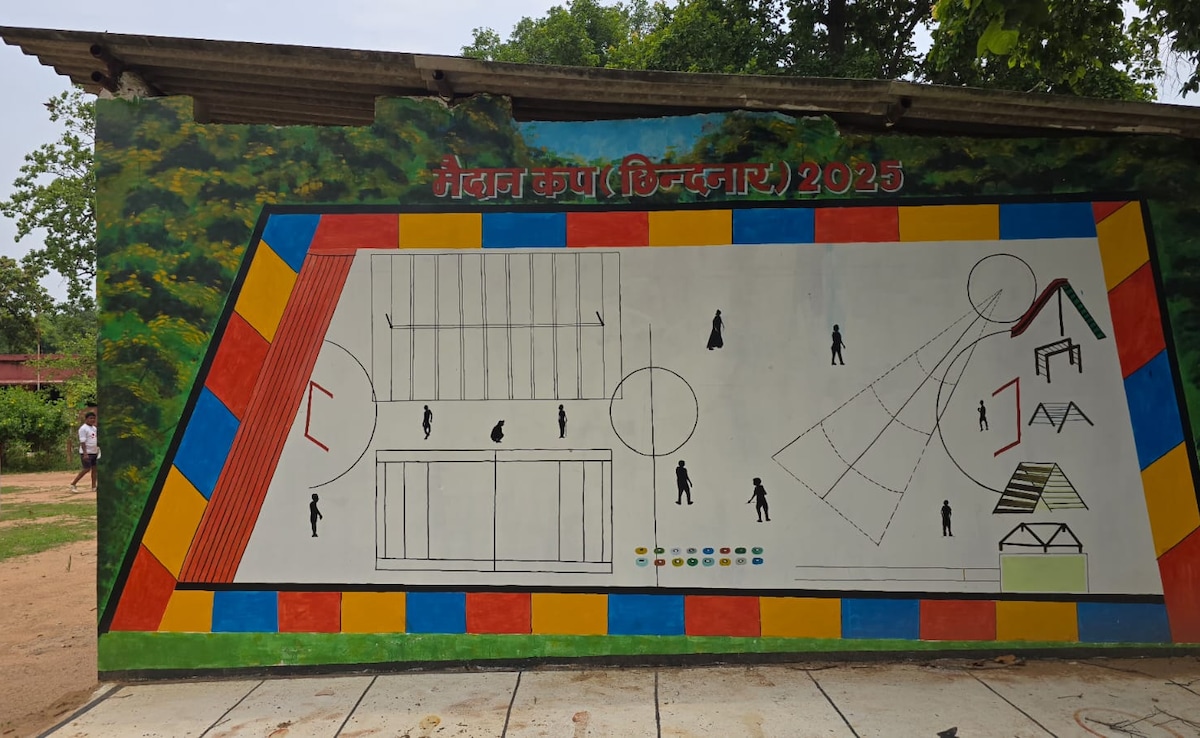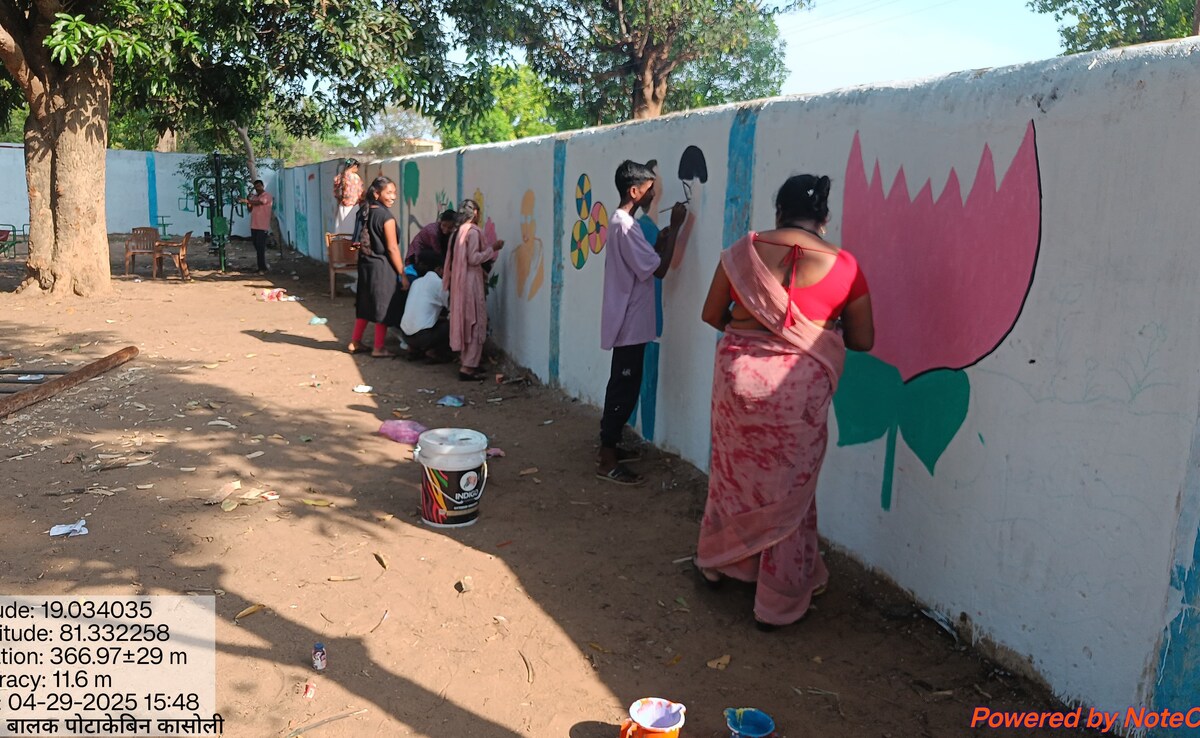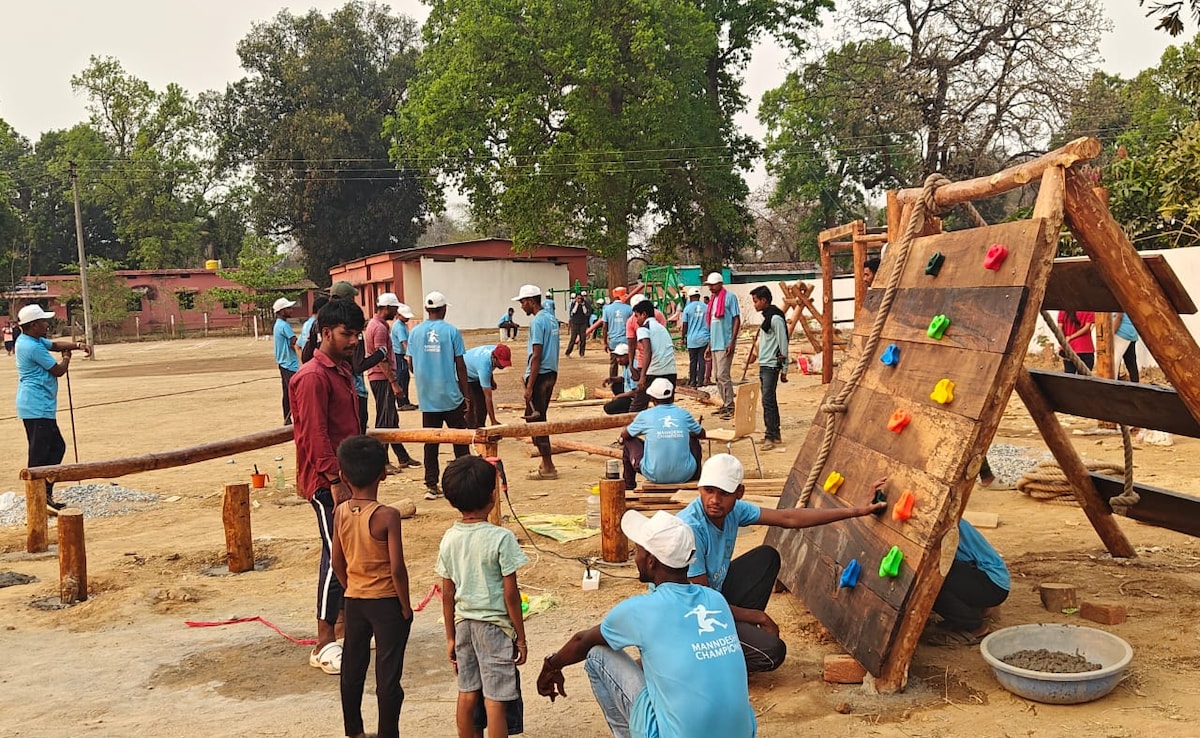
- Sachin Tendulkar is promoting social change in Dantewada through sports and community initiatives
- Fifty new playgrounds are being built in Bastar villages to foster community engagement and inclusion
- Local villagers are actively participating in constructing the facilities, emphasizing community ownership
In the heart of Chhattisgarh's Dantewada district, where echoes of conflict once overpowered the laughter of children, a quiet but powerful revolution is taking root - one that's being sown not with politics, but with purpose; not with fear, but with footballs, cricket bats and kho-kho lines scratched into the soil.
Here, in a land long known for its dense forests, tribal heritage, and the dark shadows of Naxalism, India's greatest cricketer is scripting a new innings. Sachin Tendulkar, the God of Cricket, is now becoming a patron of peace - laying the foundation of social change through sport, with the construction of 50 playgrounds in Bastar's villages, in partnership with the Mann deshi Foundation.
These aren't just playing fields. They are arenas of transformation.
They are the first green shoots of hope in places where for decades, dreams had no place to grow.
A New Narrative for Dantewada
For most, the name Dantewada conjures up a map marked with conflict zones. But now, that mental image is beginning to change - because in village after village, bamboo goalposts are going up, mud tracks are being levelled, and pull-up bars made from forest wood are being hoisted - not by outsiders, but by the villagers themselves. "We are not bringing contractors from outside," says Divya Sinha of the Mann deshi Foundation, standing under the sun in Chhindnar village.

"People from 50 villages have gathered here. We're conducting the Maidan Cup on this small, self-built ground. They'll go back and build similar playgrounds in their own villages. Our foundation and the government will help, but the soul of this initiative is community."
The initiative goes far beyond just fitness or recreation. These playgrounds will offer facilities for cricket, football, kabaddi, kho-kho, athletics - and serve as real-life classrooms for leadership, teamwork and self-discipline.

Sachin Tendulkar, whose life story itself is a lesson in perseverance and discipline, believes that sports teach values no textbook can. They bring children into a structure. They spark confidence. They anchor young minds to goals bigger than themselves. "I came from village Bade Godre," says Virendra Kumar Kawasi, a local youth. "We were taught how to measure the field, how to mark the boundaries, and even dig a long jump pit. It felt good to learn this. I wish every school had a ground. When children play by the rules, they learn how to move ahead in life."
For tribal communities who have historically lived on the margins of both geography and government policy, these fields are more than just sports facilities. They are bridges - from isolation to inclusion, from missed opportunities to moments of pride.

They offer a sense of belonging. A chance to compete, to win, and most of all - to be seen. A young boy from a remote Bastar village kicking a football across a dusty ground may never have dreamed of the Olympics. But now he can. Because someone like Sachin Tendulkar believes he should.
Each of these 50 playgrounds is a story in progress. In years to come, they may give India its future athletes, but even if they don't, they will have already achieved something greater - giving a generation in Dantewada the confidence to dream again.
The villagers, the children, the mothers watching from the sidelines - all speak a common language of hope now. A local youth, his eyes glinting with excitement, says: "Now we don't feel left behind. We will play too. And we will make something of ourselves."
This is rural India's silent revolution, built with mud, bamboo, belief - and one man's vision to return something more lasting than just runs or centuries. In the tribal belt of Bastar, as goalposts rise and dust clouds swirl behind running feet, a new India is taking shape. And as always, Sachin Tendulkar is still at the crease - playing for the country.
Track Latest News Live on NDTV.com and get news updates from India and around the world

